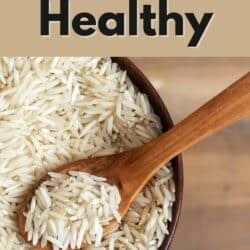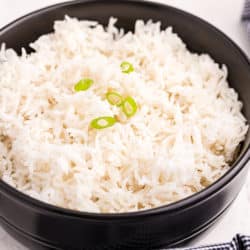Is Basmati Rice Good for You (Nutrition Pros and Cons)?
In this blog post, I’ll review the question of whether basmati rice is good for you or not. Find out the nutrition pros and cons of basmati rice, plus some tips on how to prepare it so it is easier to digest.
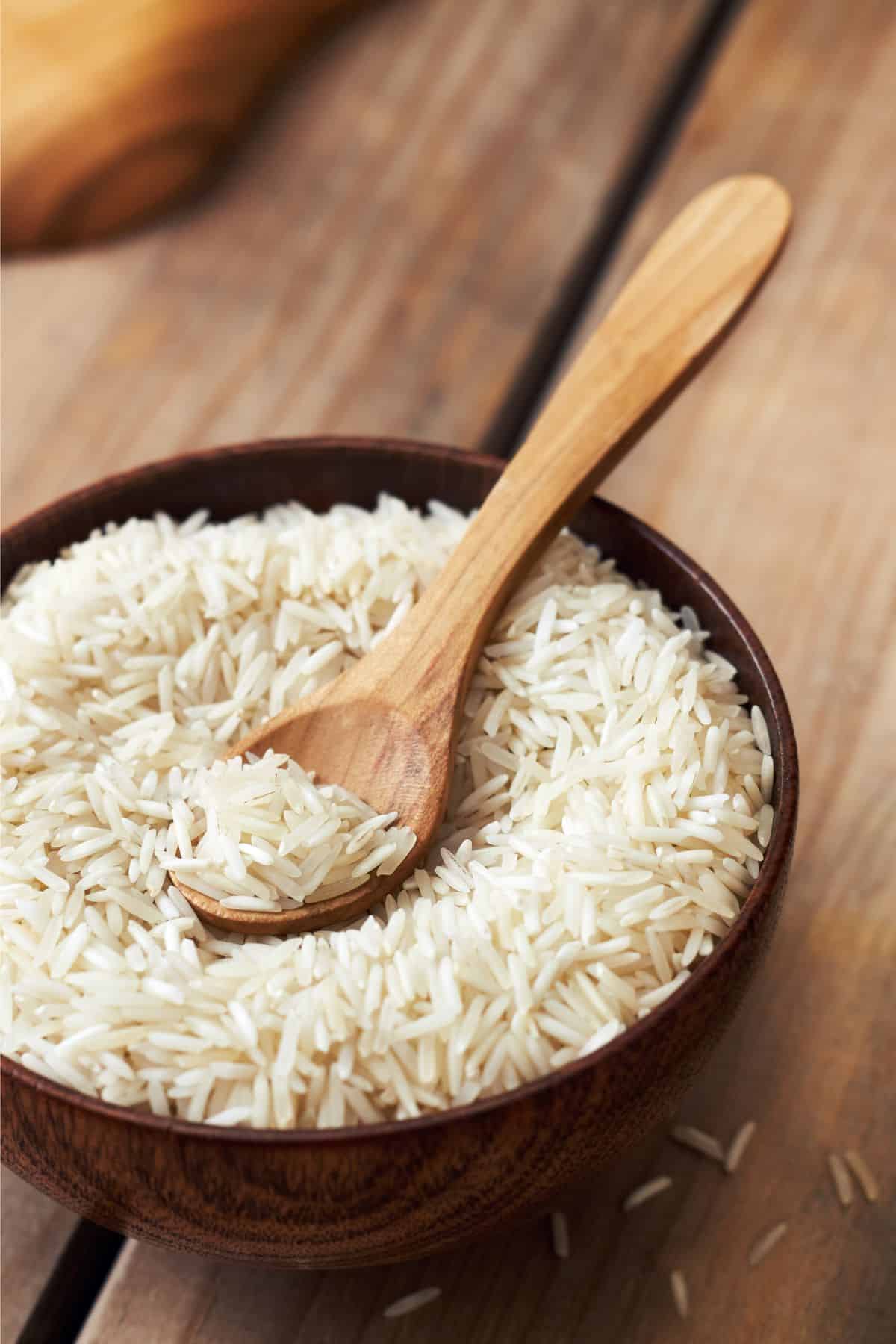
Basic Facts About Basmati Rice
Basmati is a fragrant, long-grain rice grown in India, Pakistan, and the Himalayas. Sri Lanka, the United States, and Indonesia are counties that also produce smaller quantities of basmati.
In the Hindi language, “Bas” means aroma, and “mati” means filled with. The flavor is lightly nutty and has a mildly floral aroma and a gentle spicy undertone. Brown basmati rice may described as having a nutty flavor with a fluffy texture.
Available in white and brown varieties, basmati is popular as a side dish for curry and other Indian dishes like pulao, pilaf, and biryani. It is particularly popular in Asian dishes because it complements mild and spicy curries without overshadowing them.
It is a staple food in many parts of the world including India and Asian countries.
Basmati rice grains are tender, separate, and not too sticky when cooked well. Some of the main differences between basmati and other rice varieties are:
- The basmati flavor profile differs from other types of rice. It enhances spices making it perfect for spicy dishes.
- Basmati rice grains are long and slender; most other varieties are shorter and wider.
- Because of its slender grains, basmati cooks more quickly than “regular” long-grain white rice.
- Basmati rice absorbs less water, so the cooked grains remain separate.
Basmati Rice Basic Nutrition Facts
White and brown basmati rice have slightly different nutritional values and health benefits.
White basmati rice has a similar nutritional value to other types of white rice such as Jasmine rice, and brown basmati is comparable with other brown rice types.
While both contain essential nutrients, brown basmati contains slightly more B vitamins, fiber, zinc, and phosphorus. Brown rice is also considered part of whole grains type of rice. Both basmati rice types also contain micronutrients like folate, selenium, and thiamine.
Even though brown basmati rice has a slightly lower glycemic index, white basmati rice can be easier to digest.
Compared with other rice varieties, basmati is lower in arsenic, a heavy metal that can increase health risks of conditions like heart problems, diabetes, and some types of cancer.
Nutrition Pros
Basmati rice is considered a low-allergenic food which is good news for people with lots of food allergies or food sensitivities.
The high fiber content can also help reduce the risk of type 2 diabetes and help manage it. The fiber in basmati rice is soluble, so it adds bulk and helps the digestive tract process waste. This type of fiber can help lower blood cholesterol levels and glucose levels.
It’s important to note that brown basmati has more fiber than white basmati, but white basmati can be easier to digest.
Another nutrition pro is that basmati rice (both brown and white) contains high levels of vitamin B, including vitamin B1 (thiamine).
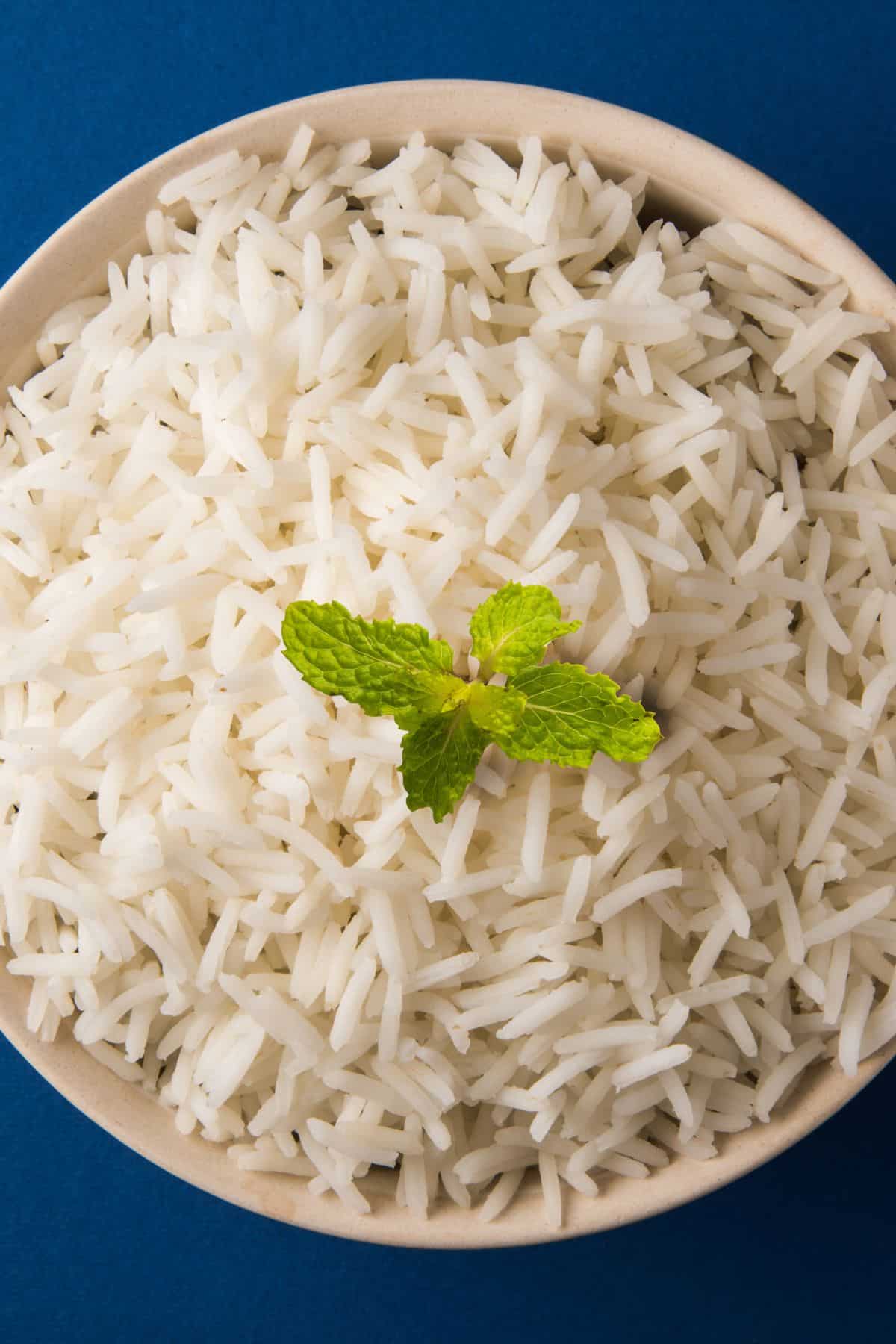
Nutrition Cons
Most types of rice have a high glycemic index which can affect blood sugar control in some people. Eating too much rice may result in weight gain for people who have diabetes or who are at risk of diabetes.
Although brown basmati is a low to medium glycemic index food, white basmati rice is slightly higher. It is also somewhat more processed and has had some of its fiber removed.
However, it’s important to note that brown rice, including brown basmati, may adversely affect the health of people with autoimmune disorders, gut problems, or blood sugar issues. See my related article on the potential benefits of grain-free diets.
Basmati rice also contains phytic acid. Known as anti-nutrients, phytic acid and phytates bind minerals like calcium, iron, and zinc within the food, reducing the body’s ability to absorb these minerals. It’s possible to reduce the phytates in food by soaking it before cooking; the same applies to basmati rice.
How to Prepare Basmati Rice
There are many different ways to prepare basmati rice, but your first step should always be to soak it overnight.
Soaking any type of long-grain rice or whole grains helps reduce the phytic acid, which can interfere with nutrient absorption.
Here are the steps to cook white basmati rice:
- Place the basmati in a bowl with enough water to cover it by an inch or two, and leave it to soak overnight.
- Rinse the rice well.
- Place the basmati rice in a cooking pot with the required water and salt. For every cup of rice, use 1 ¾ cups of water and around ½ teaspoon of salt.
- Bring the rice, water, and salt to a boil and reduce the heat to low to medium.
- Cover the pot and allow the basmati to simmer for 10 minutes.
- Remove the pot of rice from the stovetop and leave it to stand for five minutes.
You can also use basmati in various recipes using other instructions. Remember, always soak basmati rice for at least 30 minutes before cooking for best results.
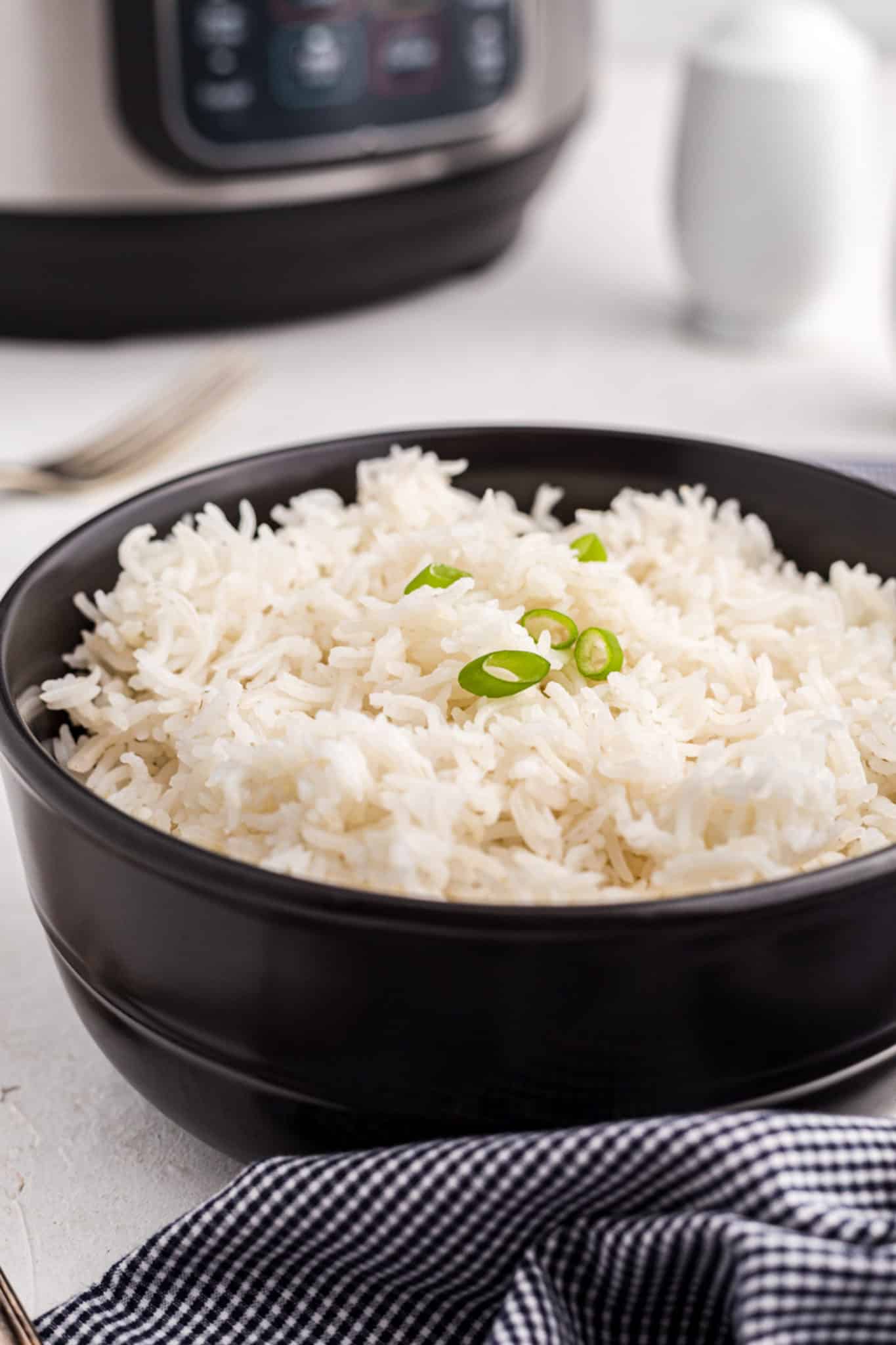
FAQs
For most people, basmati rice is healthy as long as it is in moderation. It contains folic acid and all eight essential amino acids. It has zero cholesterol and is low in sodium.
Basmati rice is also generally lower in arsenic than other types of rice. Arsenic is a heavy metal that can harm your health and may increase your risk of certain cancers, heart problems, and diabetes.
No, they’re not. Brown and white basmati rice are different and they have slightly different nutritional values. White basmati is a little more processed and has the hull, bran, and germ removed. Only the hull gets removed with brown basmati.
The taste is also similar, but not the same. Brown basmati rice has a more intense, nuttier flavor than white basmati. Brown basmati also has a stiffer texture, so it has a longer cooking time and requires more water to cook.
Brown basmati and varieties of rice have more fiber and are a little more nutritious. However, they also contain more phytates.
Those with leaky gut, an autoimmune disorder, or blood sugar issues may need to avoid grains altogether or speak to a healthcare provider about including moderate amounts into their diet.
It is also worth noting that brown rice, including brown basmati, has a slightly higher arsenic content than white basmati rice because it accumulates in the hard outer bran layer, which is not removed during processing.
Most types of white rice have a high glycemic index, and basmati is slightly lower, so it is a little healthier. Eating basmati in moderation can be part of a healthy balanced diet. Brown basmati may affect blood sugar levels less than white basmati rice.
Basmati Rice Recipes To Try
Conclusions
Basmati rice is a fragrant and tasty rice used as a side dish for curries or in rice-based dishes like biryani and pulao. There’s a slight difference in the nutritional value of white and brown basmati. They also taste different, and their cooking times vary.
For most people, eating basmati rice in moderation is a healthy option. It is high in fiber, low in sodium, and does not contain cholesterol. Basmati also contains less arsenic than many other rice varieties.
Don’t forget to join my newsletter list to get exclusive clean eating recipes and tips. The newsletter is 100% free with no spam; unsubscribe anytime.
About the Author: Carrie Forrest has a master’s degree in public health with a specialty in nutrition. She is a top wellness and food blogger with over 5 million annual visitors to her site. Carrie has an incredible story of recovery from chronic illness and is passionate about helping other women transform their health. Send Carrie a message through her contact form.
Note: this post is for informational purposes only and is not intended as medical advice. Please consult your healthcare provider for recommendations related to your individual situation.


